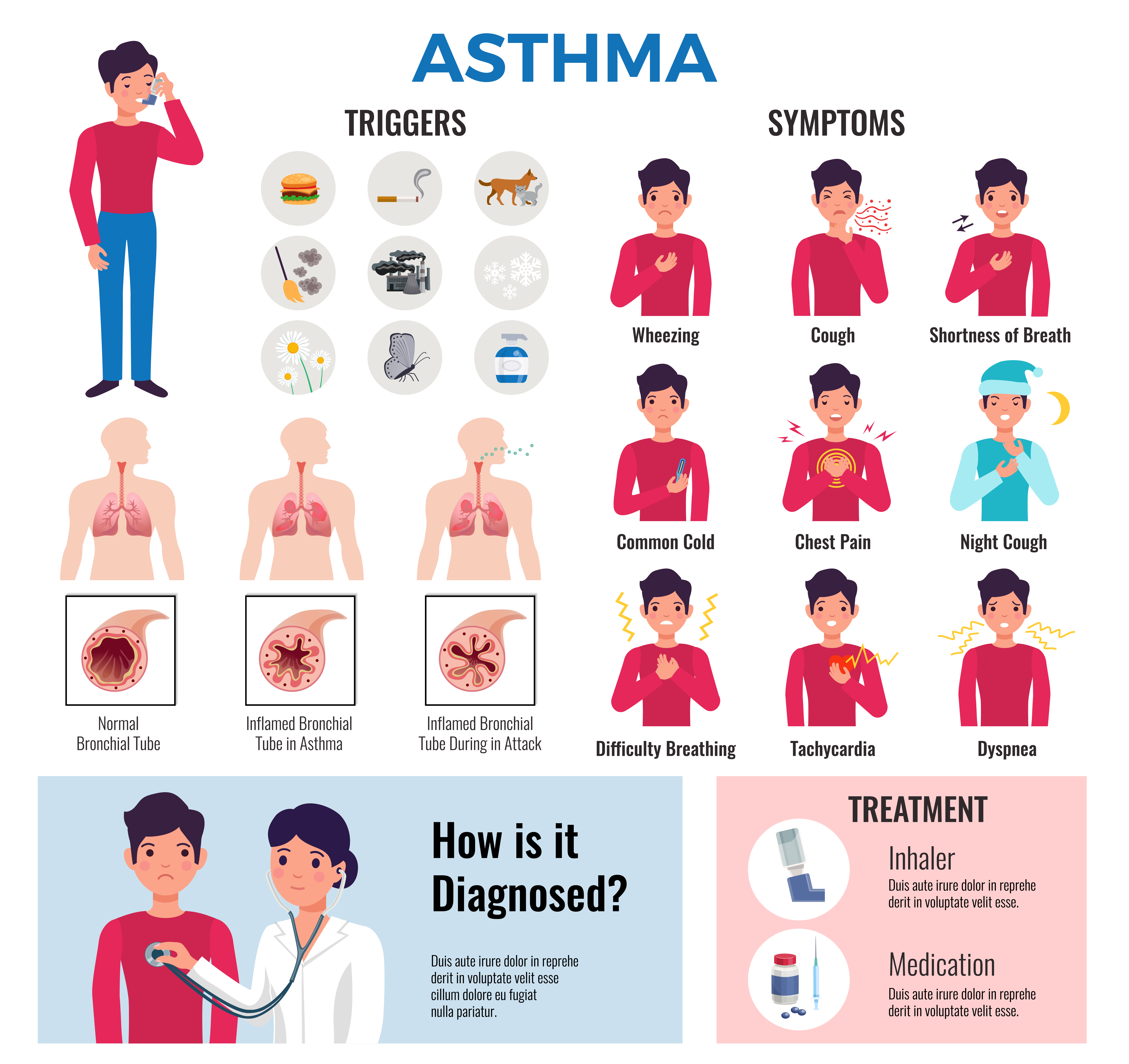Asthma Control - The Ultimate Asthma Guide for Better Breathing
Asthma in 2025 still affects millions of people in India, but now more people are willing to take control. This ultimate asthma guide 2025 is intended to educate people with proper asthma management techniques, lifestyle changes, and tools for sustainable asthma management.
Asthma in India, especially in polluted and heavily populated cities like Nashik, Mumbai, and Delhi, is alarmingly more common as a chronic respiratory disease due to rising pollution, junk foods and constant stress levels. However, with the rise of asthma awareness, many more healthcare facilities such as KIMS Manavata Hospital and ease of knowledge access, managing asthma is easier than ever.
Managing asthma is more than just using inhalers, it is about being aware of asthma and your asthma symptoms, identifying asthma triggers, and thinking about a daily plan to strengthen immunity and prevent an asthma attack. For instance, recognizing the warning signs of an asthma attack, learning deep breathing strategies for asthma, learning ways to help manage stress are some of the preventative and holistic ways to manage an asthma episode.
What is truly reassuring?
You don't need expensive equipment to help control asthma, you just need knowledge, self-discipline, and a little help. Let's take a look at some ways you and your family can live a healthier, easier life despite asthma.
What is asthma? Asthma is a chronic medical condition that is characterized by narrowing and inflammation of the airways. The usual symptoms are wheezing, coughing, feeling tight in the chest, and having difficulty breathing. Asthma is considered a chronic disease, but when controlled properly, a person can live an active and normal life.
Key Lifestyle Management for Asthma Control
Each person who has asthma has their own set of triggers. The most common triggers are dust, pollen, smoke, pet dander, perfumes, household cleaners, and fumes. The best way to keep your symptoms under control is to avoid and recognize the things that trigger your asthma.
Foods high in vitamin C, fruits, vegetables with dark green or leafy vegetables, and food with antioxidants will help boost your immune system and can also reduce inflammation. Vitamins can be helpful especially during the flu season. The foods we eat play a major role in stopping asthma attacks.
Physical exercise is important and it needs to be done wisely. Never do extensive exercise outdoors in haze. Yoga, breathing, or low-impact indoor exercise in a well-ventilated room will help with the increase in lung performance without triggering asthma.
Emotional distress, worry, and even strong emotions that may include crying or laughing can trigger symptoms. Meditation, deep breathing, and counseling minimize emotional triggers and enable greater self-control over asthma.
Asthma and smoking are a deadly combination. Whether active smoking or passive smoking asthma exposure, they are both detrimental to your lungs. Therefore it is critical to create a smoke-free environment for proper asthma management.
Excessive weight puts you at higher risk for serious asthma as well as other issues such as sleep apnea. Taking control of your weight through regular exercise and a healthy diet will help you avoid excessive inflammatory response and unnecessary strain on your lungs.
Family and Community Support
Family and community support are instrumental in fostering belief and continuity of symptom management and treatment. Family or community groups, asthma clubs or resources from facilities such as KIMS Manavata Hospital in Nashik, in combination with community driven asthma support, can help ease the path for patients and caregivers.

